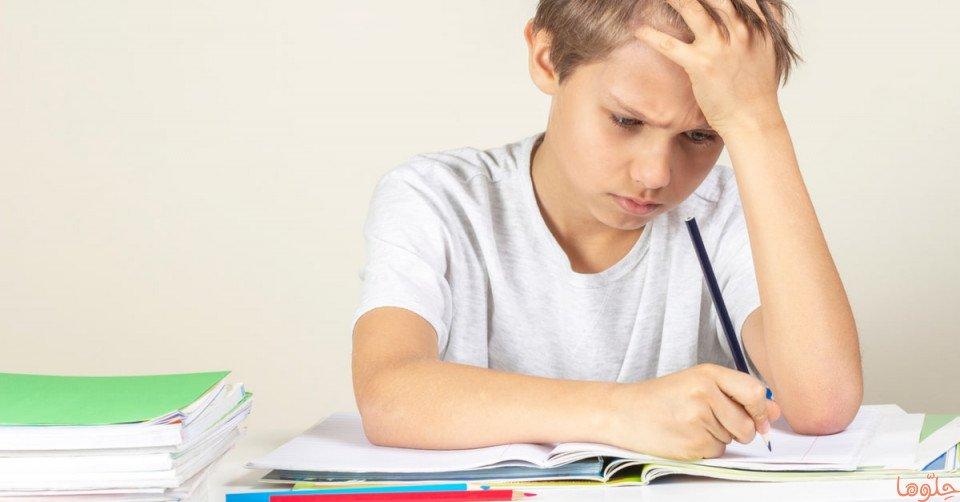A Decrease font size.A Reset font size.A Increase font size.
Amman - The process of writing is a skill that a student learns in the early school stages of his life, and it is a means of expression and communication with others.
Writing skills and written expressions require correlative and lasting focus and attention, so some students with learning disabilities also have difficulty learning to write or provide clear writing models, and these students need focus and directional teaching to be able to provide clear writing to communicate or communicate with others.
The most important goals of teaching writing are clarity of line, fluency and the ability to write letters quickly and accurately, and this reflects the students’ success in learning written expressions. Focusing on how to properly hold writing instruments to transcribe interlacing letters, symbols, and letters, and then maintain the usual spacing and proportions between words.

Movement problems, difficulty in visual perception of letters and words, poor teaching, poor visual memory, and lack of motivation among the learner. Wrong visual perception of letters and words.
- Frequent mistakes in writing letters. Problems placing spaces between words and sentences. Disorganized writing. Avoiding writing activities. Low self-esteem, so the student begins to blame himself, which reflects negatively on his performance.
Does the student hold the pen correctly? Does the student write with the pencil correctly, flexibly and comfortably? Does the paper on which the student writes take the correct position and on the part to be written on? The paper on which he writes? - Does the student write with his hand in a consistent and consistent manner with his body? - Does the student appear frustrated, nervous, or any other psychological state when writing? - Does the student have negative behaviors towards writing (handwriting) or appear bored or alert?
One of the most important points in the training is to relieve the pressure of writing on the student and the accompanying tension that affects his performance, and to allow the student to use other means of expression with writing, such as speaking or typing on the computer.
Teachers should also give students who have difficulty writing more time in exams and during transportation from the board, and teachers can use worksheets instead of writing on the board to reduce the student's embarrassment in front of his colleagues.
Special pens and papers can be used for the student, erasable and adjustable, with suitable lines for writing, and the student in multi-sensory exercises such as writing on sand and air. Parents and teachers can also reward the student after completing some writing tasks so that he continues to perform the skill.
Brief writing lessons (calligraphy and multiple lessons or training sessions) per week have a much more effective and significant effect than one extended session or weekly or monthly session. How to avoid bad habits or even their development in students such as errors in the formation and drawing of letters that may cause a problem for the student later when he needs to develop his correct writing speed.
The teacher must explain to students the correct way to write letters and carefully supervise the students as they write. For some students, noticing changing written patterns (such as watching the teacher write) may be more beneficial than simply copying and copying already written patterns.
Special Education Specialist: Yosr Badran, Master of Special Education